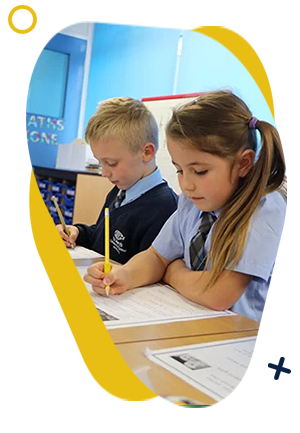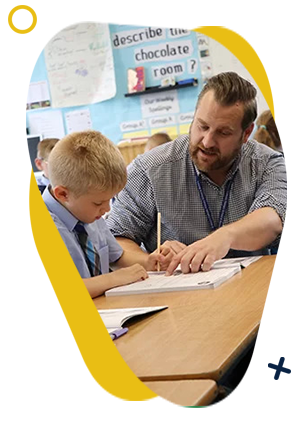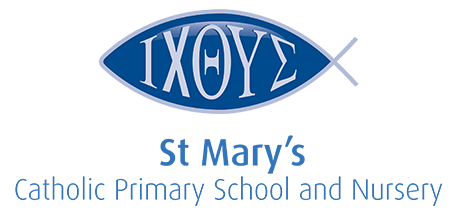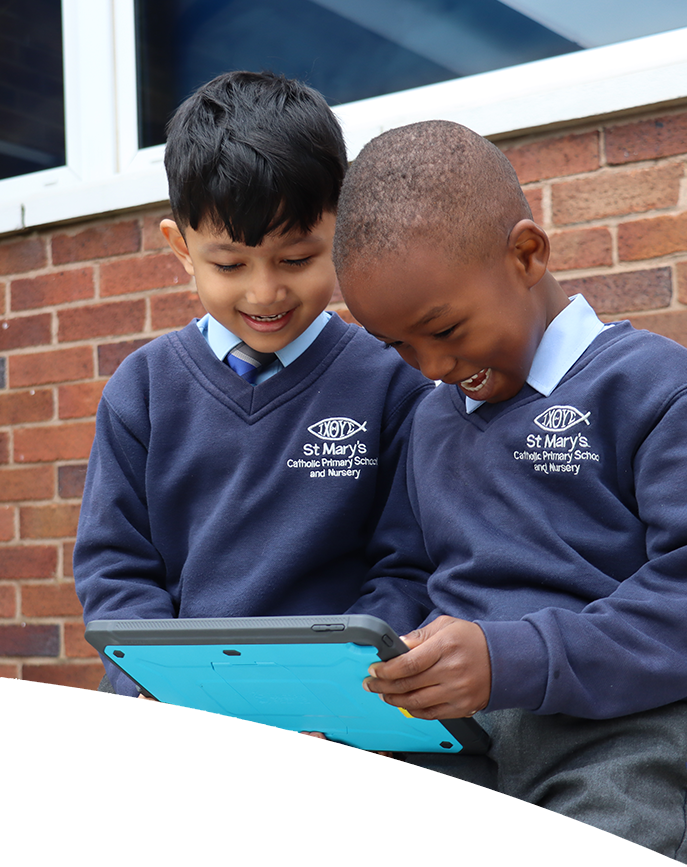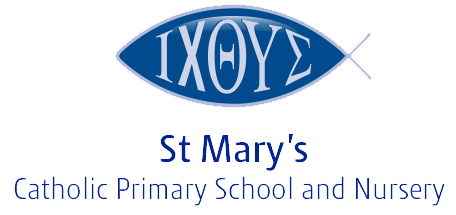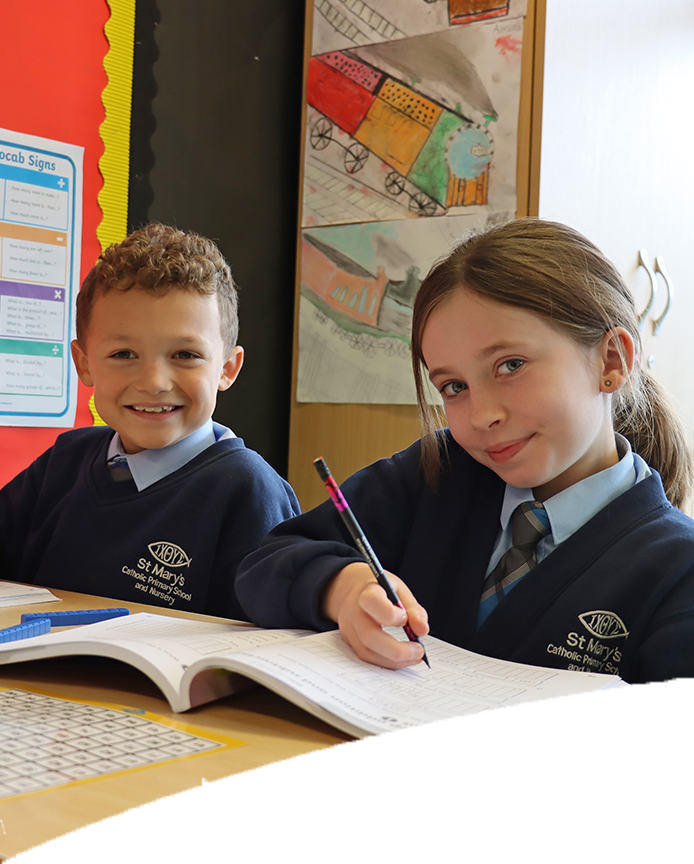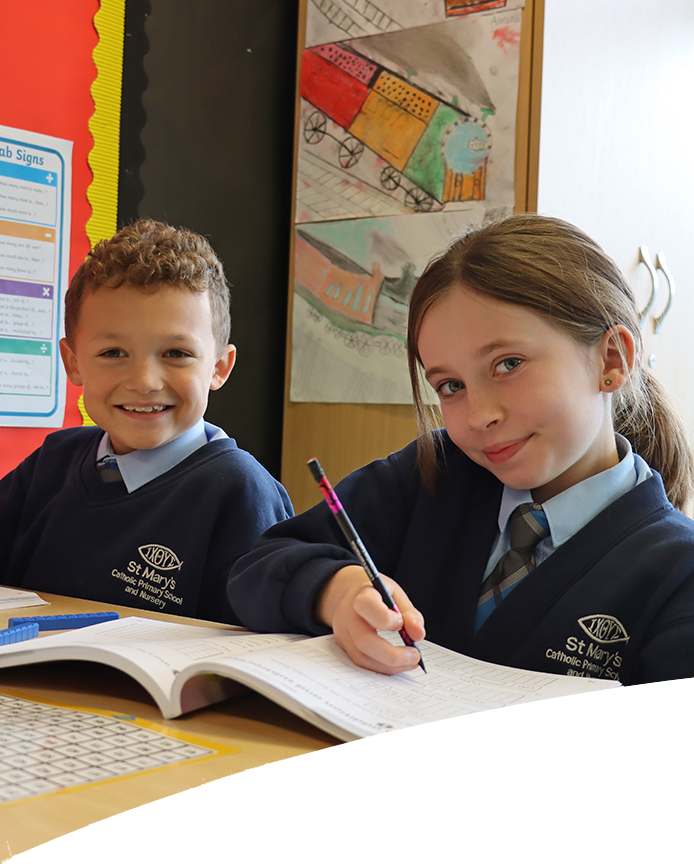Reading and Phonics Information
Phonics and Spelling
St Mary’s follows the ‘Little Wandle Letters and Sounds Revised’ programme for teaching phonics and early reading. Phonics is taught in discrete daily lessons and is continually reinforced in English and Guided reading sessions. Phonics activities are focused, engaging and consistent to ensure all learners are participating and making progress
Children in the EYFS take part in a range of activities aimed at developing their listening skills. Grapheme-phoneme correspondence is introduced and children are taught the process of segmenting and blending to enable them to read and write simple words.
Year 1 is a foundation year for both reading and spelling, with children being taught important spelling patterns and exception words as well as how split digraphs work. They will learn both digraphs (sounds made by two letters, such as ‘ee’ or ‘ir’) and trigraphs (sounds made by three letters, such as ‘igh’ and ‘tch’). They will look at how the same sounds can be made by different groups of letters, for example: oy and oi (as in ‘toy’ and ‘coin’)
Children will also be taught ‘common exception words’. These are words commonly found in the English language, but which do not follow the phonic rules that have been taught so far. Examples of these in Year 1 are: ‘were’, ‘once’, ‘school’, ‘house’.
In Year 2 a more formal spelling programme is introduced. Children continue to develop their phonological awareness, as well as taking a more in-depth look at rules and patterns within different words. For example, they may look at one particular sound and then see how it is represented in different words. Children will also learn another group of common exception words. Examples of these in Year 2 are: ‘sugar’ and ‘eye’.
Reading
